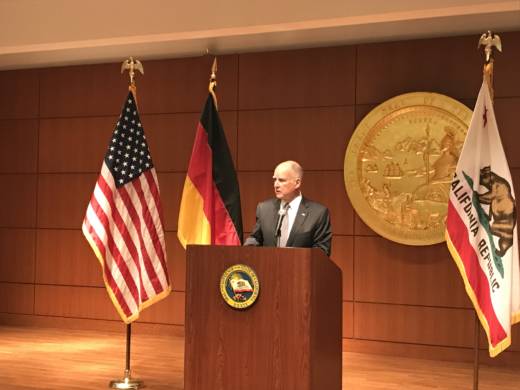California lawmakers head into the weekend without a final deal on the state budget, and without resolving how to spend new tobacco tax revenue and whether to extend the state’s cap-and-trade program.
The governor and legislators agreed on a number of issues late Thursday night, and negotiations will continue as lawmakers face a June 15 deadline to approve a budget.
“In trailer bills, it can be accomplished,” Gov. Jerry Brown said Friday of a cap-and-trade deal. “We’re working very hard to do that.”
The state’s current cap-and-trade program, in which businesses are allowed to buy and sell credits that allow them to pollute, expires in 2020. Brown is pushing for a two-thirds vote to protect the program from legal challenges, and new state emission goals will likely require the program to make emissions more costly for businesses.
Of more immediate concern is how to spend more than $1 billion in new revenue from the state’s tobacco tax (Proposition 56). The Brown administration wants to use the new funds to pay for the state’s expanding Medi-Cal program. Legislators want to pay for provider rate increases to doctors, dentists and reproductive health clinicians.

